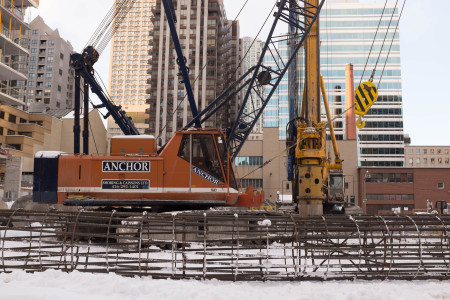Nothing follows up a day of photographing union rallies like a lavish dinner with a live expert reading of a ghost story, followed by a raucous party.
Category: Daily updates
Generally musings of the day, usually accompanied by a photograph
Photos of the day suspended
Within the next month or so, Toronto350.org needs to finish updating the fossil fuel divestment brief. I also need to substantially develop my PhD research proposal and find a supervisor. Furthermore, I need somewhere to live after Massey College, and of course there is now 20 hours a week of strike picket duty.
As such, I don’t expect that I will be posting photos of the day here regularly. My Flickr photostream will continue to be updating, including with extensive documentation of the U of T TA strike.
CUPE 3902 strike day 1
The CUPE 3902 strike began at U of T today.
I put in eight hours of picketing, and also got photos of all the picket sites on the St. George campus.
CUPE 3902 tentative agreement
I am at Convocation Hall for a meeting of the members of CUPE3902 Unit 1 – the union for teaching assistants at the University of Toronto.
We are discussing a tentative agreement which the bargaining team reached with the administration late last night.
To me, the proposed deal looks deeply inadequate. They are proposing wage increases of 1%, 1%, 1.25%, and 1.25% over the next four years.
For starters, the Bank of Canada calculator shows that the real value of the funding package has fallen by 9.89% since it was set in 2008. In addition, the proposed wage increases don’t even keep up with inflation for the years in which they happen.
We will see what happens in this meeting, but I hope my fellow union members won’t accept something so inadequate. The objective here is to get beyond poverty wages for TAs – not to reduce them further.
2:55am bargaining position
Fresh from the CUPE 3902 mailserver:
Friends,
A few minutes ago, our Bargaining Team voted unanimously to recommend a tentative agreement. All seven Bargaining Team members believe that this is an agreement we can proud of, with many significant gains for our members.
Of course, members will have the final say on this agreement. As per previous notice, we will meet later today (Friday, Feb. 27) at 3:30 p.m. in Convocation Hall. Sign-in will begin at 2:30. We believe there will be a large turn-out, and we ask members to come as early as possible.
To alleviate the need for the Union to print tens of thousands of pages, we ask all members who are able to bring tablets or other electronic devices so that they can view the tentative agreement electronically.
The Employer has agreed to provide work release to any members who need to miss work to attend the meeting. There will be no loss of pay. Please notify your supervisor or department.
We look forward to discussing this agreement and to debate over the agreement later today.
In Solidarity,
–Ryan
Some of what the week ahead involves
Tomorrow, I have picket line training and the U of T divestment planning meeting. I also need to do my readings for the Markets and Justice course Tuesday, which is followed by the normal 350 planning meeting. Wednesday, I have three tutorials to teach. Thursday is the strike deadline, with a rally being held. For Thursday evening, I need to put together an agenda for the Toronto350.org board meeting, which I am chairing, as well as try to finalize the bylaws for the organization. Friday there will either be a union meeting in the afternoon to discuss the final offer from the administration or a strike kick-off event. Saturday, I am performing a sketch (yet to be rehearsed) for Massey’s Tea Hut talent show.
In the background, there is the need to finish the brief update, start preparing our presentation for the ad hoc committee, finish my PhD research proposal, find a supervisor, find somewhere to live after May 1st, and find a way to keep summer expenses from killing my bank account.
Anchor crane
Mid-February
The last couple of days in Toronto have been a reminder of winter in Ottawa.
That’s particularly true of the importance of going out in an extra-warm double-layered toque and wool scarf; merino wool top and bottom long underwear; a t-shirt, long-sleeve fleece, and down vest; a long jacket with extra insulating liner; fingerless inner gloves and heavy outer gloves; cargo trousers; cotton inner socks, wool outer socks, and hiking boots.
A walking home across one bridge spanning the Don Valley at 2:00am a few nights ago was, surprisingly, a lot less cold than walking around in the sun yesterday afternoon.
My hope is to take advantage of reading week to make progress on the fossil fuel divestment brief update; my PhD research proposal; the book chapter I am helping with; and the initiation of the Massey Halfway House project. If anybody knows about (or knows someone who knows about) real estate in the U of T area, I would like to be in touch.
Massey Murder Game 2015
The annual Massey College Murder Game is on.
I am up to three kills since it began at 12:15pm yesterday. It runs until 12:15pm on Thursday.
I still don’t know exactly who has me as a target.
Formal public policy results
After a delay, I received formal notice of the results of my second comprehensive exam today.

